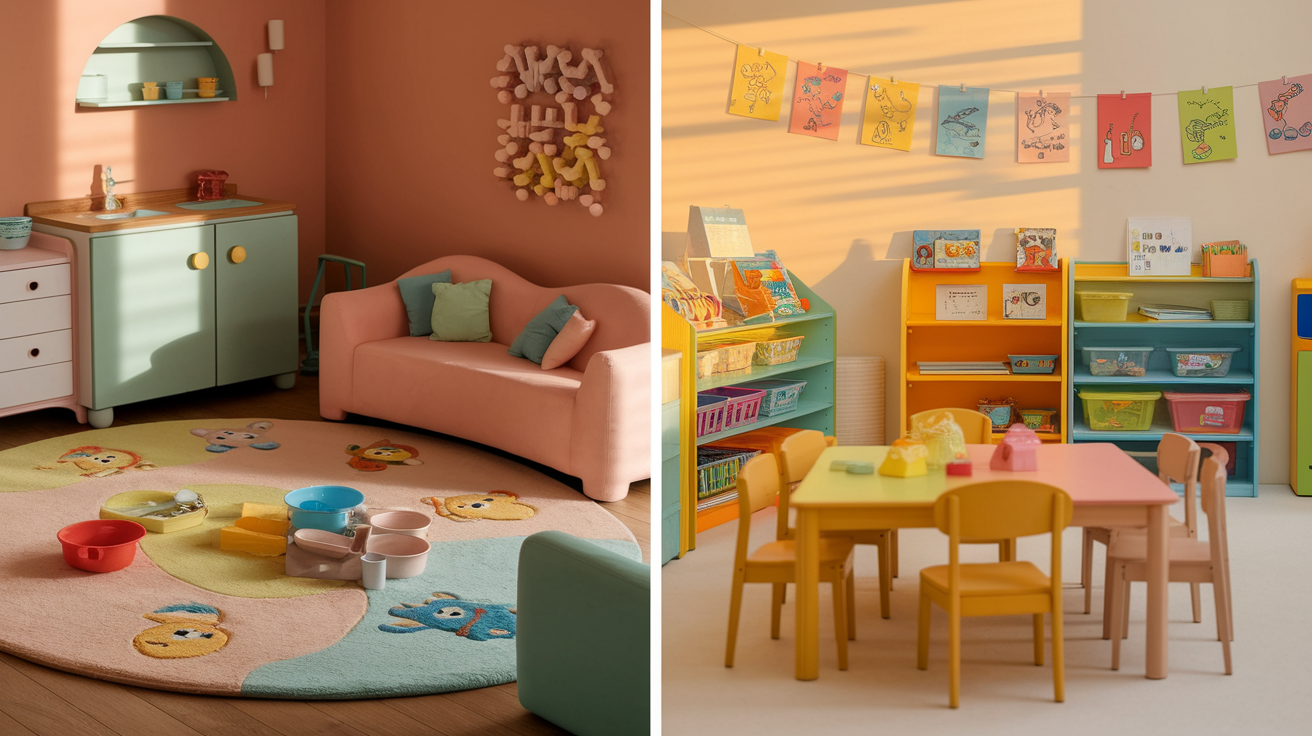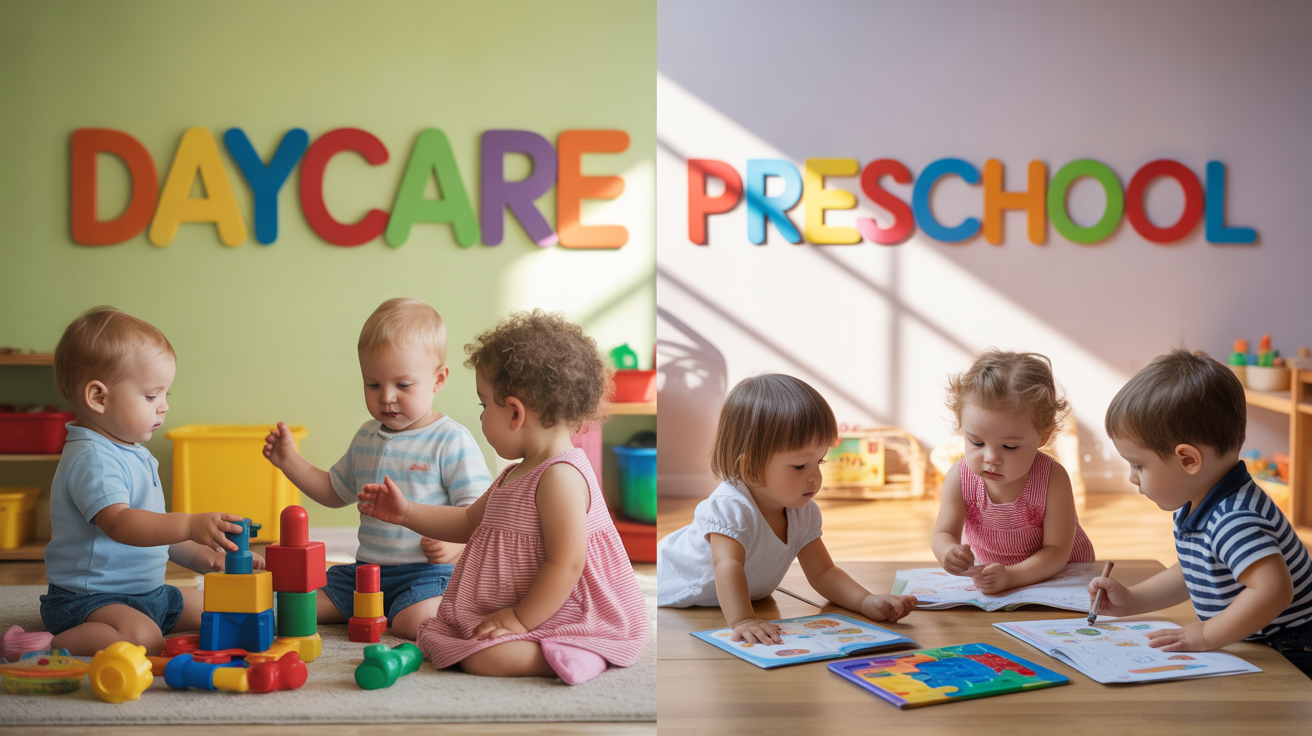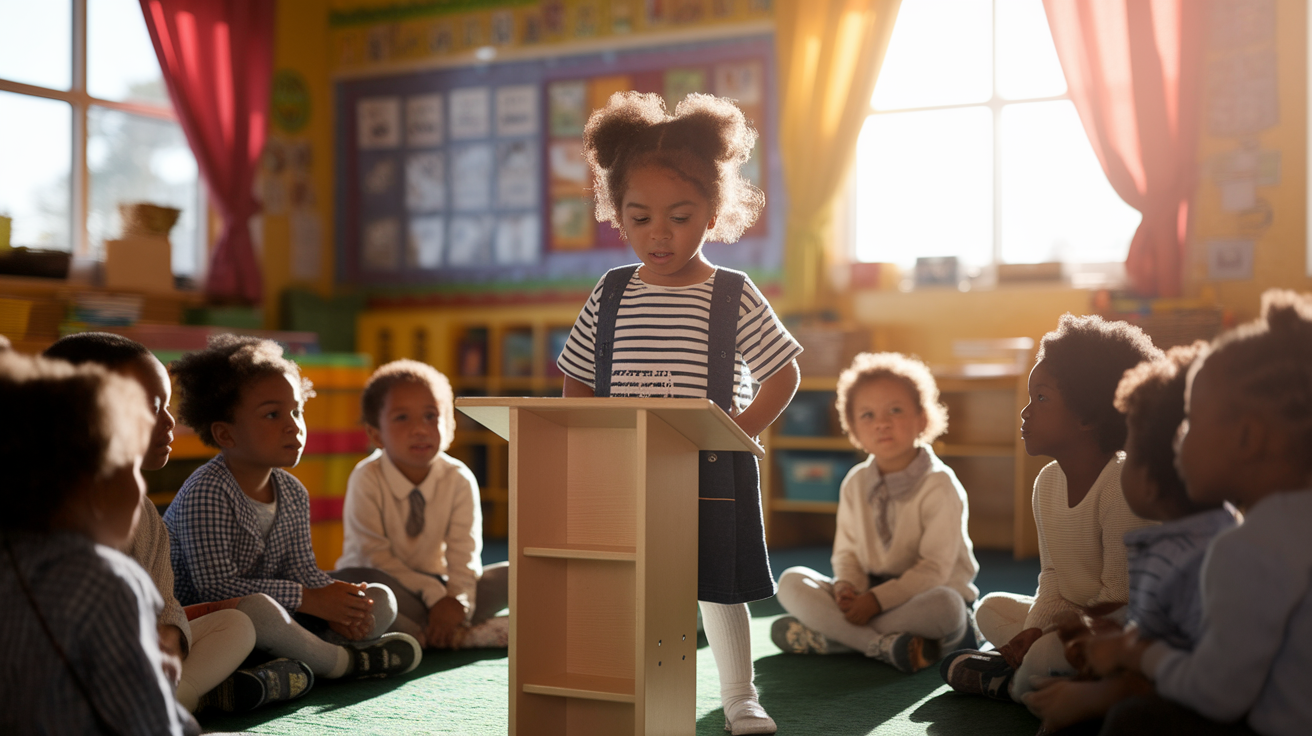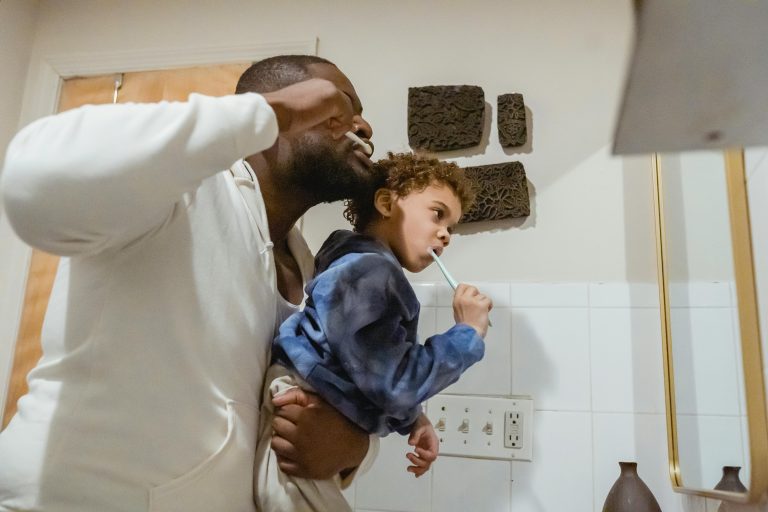Daycare vs Preschool: Which is Best for Your Child’s Growth

Looking for the right place for your little one? You’re not alone.
Every parent faces this puzzle. Daycare or preschool? They sound similar, but they’re actually quite different.
Think of it this way. Your child needs care while you work. But they also need to learn and grow. Some places focus more on one than the other.
Daycare keeps kids safe and happy while parents are busy. Preschool gets kids ready for kindergarten with learning activities. Many parents don’t realize these differences until they start visiting places.
The choice affects your child’s day and your family’s routine. It impacts their social skills and learning, too.
Don’t worry though. Once you understand what makes each option special, picking the right fit becomes much easier. Your child will thrive either way.
What is Daycare?
Daycare is a childcare service that provides supervision and care for children while their parents are at work or attending school.
These centers typically accept infants as young as six weeks old through children up to five years old, offering flexible hours that match parents’ work schedules.
The primary focus is on keeping children safe, fed, and engaged throughout the day.
Most daycare centers provide meals, snacks, and nap times as part of their daily routine.
Children participate in basic play activities, arts and crafts, and some developmental games that help them learn social skills. Staff members supervise free play, outdoor activities, and group interactions.
What is Preschool?
Preschool is an educational program designed to prepare young children for kindergarten and formal schooling.
Most preschools accept children between the ages of three and five, with a focus on structured learning rather than just childcare.
Teachers follow planned curricula that teach essential skills, such as letters, numbers, shapes, and colors, through engaging activities and hands-on learning.
The emphasis is on developing school readiness, social skills, and independence through organized lessons and educational play.
Children learn to follow routines, take turns, and work in groups, building the foundation they need for academic success in elementary school.
Key Differences Between Daycare and Preschool

While both places care for children, they have distinct goals and approaches. Understanding these differences helps you figure out what works best for your family’s needs.
These are the primary ways daycares and preschools differentiate themselves.
| ASPECT | DAYCARE | PRESCHOOL |
|---|---|---|
| Age Range | Serves infants to toddlers (ages 6 weeks to 3 years) and sometimes up to 5 years old. | Caters to children ages 3 to 5, preparing them for kindergarten. |
| Educational Focus | Focuses on care and supervision, with informal, play-based educational activities. | Strong emphasis on structured learning aimed at academic development. |
| Curriculum and Activities | Flexible, play-based with social interaction and basic learning. | Structured curriculum focusing on academic readiness (letters, numbers, etc.). |
| Teacher-to-Child Ratio | A higher ratio of children to caregivers results in less individual attention. | Lower ratio for more personalized attention and focused education. |
| Cost | Generally more affordable, with extra fees for extended hours. | Typically more expensive due to structured curriculum and educational focus. |
These differences indicate that daycare and preschool cater to different family needs.
Daycare works well when you need reliable childcare with basic learning activities. Preschool is ideal when preparing your child for school is the primary goal.
How Daycare and Preschool Impact Child Development

Both daycare and preschool play essential roles in shaping how children grow and learn. The experiences your child has in these early years significantly impact their social skills, cognitive abilities, and emotional development.
Understanding these impacts helps you see how each choice might benefit your child’s overall development.
1. Social Development
Daycare offers mixed-age group interactions where children learn from older and younger peers through free play and daily activities.
Preschool provides same-age socialization with structured group activities that teach turn-taking, sharing, and classroom behavior.
Both settings help children develop friendship skills, but preschool focuses more on preparing kids for the social expectations of school.
2. Cognitive Development
Preschool emphasizes planned educational activities that build pre-reading, math, and problem-solving skills through guided lessons and learning centers.
Daycare supports cognitive growth through play-based questioning and basic educational activities, but without formal curriculum requirements.
Children in preschool typically develop stronger academic readiness skills, while daycare kids learn through natural finding and interaction.
3. Emotional Growth
Both settings help children separate from parents and build confidence in new environments with supportive caregivers.
Preschool teaches emotional regulation through structured routines, classroom rules, and group management techniques that mirror school expectations.
Daycare focuses on comfort and security while gradually building independence through daily care routines and mixed-age interactions.
Which Option is Best for Your Child?
Choosing between daycare and preschool depends on your child’s unique needs and your family situation. Consider your child’s personality and development level.
Some children thrive with structured learning, while others require more flexible playtime. Consider your work schedule as well.
Daycare often offers longer hours and year-round care, which is more suitable for full-time working parents. Preschool schedules usually follow school calendars with shorter days.
Also consider your child’s social skills and school readiness. If kindergarten is approaching, preschool might help them adjust to classroom routines. Trust your instincts about what feels right for your child and family.
Conclusion
Understanding the key differences between daycare and preschool helps you make the best choice for your child and family. Daycare focuses on reliable childcare with flexible hours and mixed-age interactions.
Preschool emphasizes structured learning and school readiness through planned educational activities. Both options support your child’s growth, but in different ways.
Consider your work schedule, your child’s personality, and their developmental needs when making a decision.
Take time to visit different centers and ask questions. Discuss your experiences with other parents. Your child will benefit from either choice when it’s the right fit for your family’s needs and goals.






